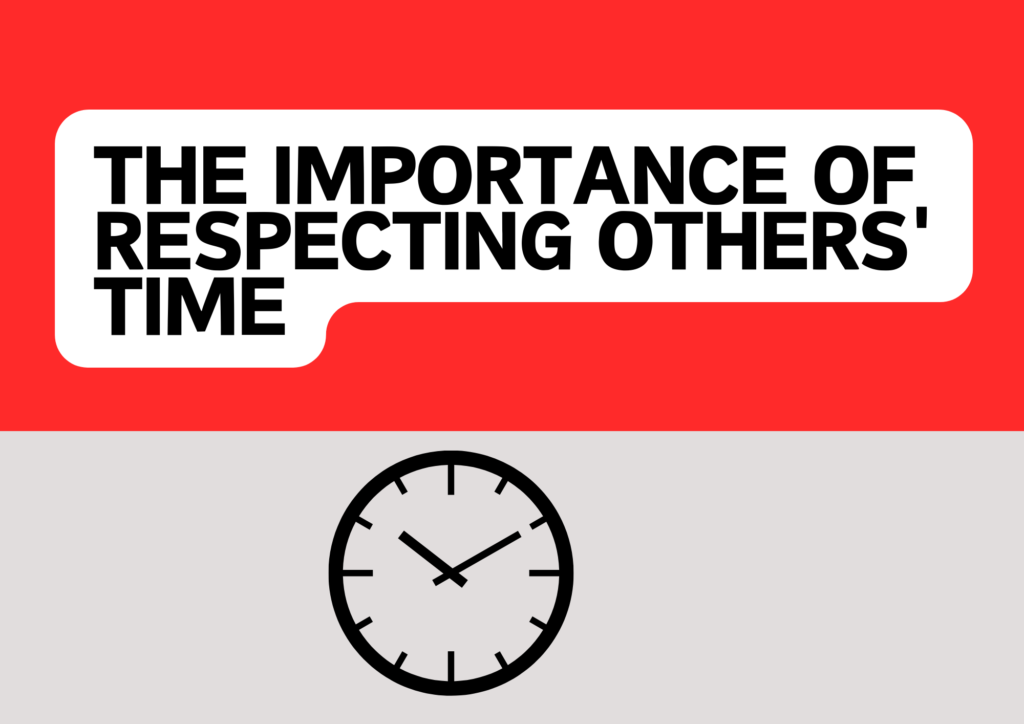The Importance of Respecting Others’ Time

In business, time is a currency more precious than gold. Each minute wasted is an opportunity missed, a potential connection lost. My recent experience—a series of rescheduled meetings with a client—serves as a vivid illustration of this principle.
The saga began with a scheduled appointment at 3 PM on a Monday—a time agreed upon by both parties. However, at the last minute, the client called to cancel, promising to reschedule the following day.
True to their word, they called, but with another twist: the meeting was back on for the same day, at the same time. I, having already adjusted my schedule, proposed a new time: 3 PM the day after next, coincidentally an election day.
The rescheduled day arrived, and with it, another call—this time, the client needed to confirm with their manager.
As the clock ticked closer to the agreed hour, a new time was set: 4 PM. Arriving at the office at the newly appointed time, I found it closed. I received a message; the client was ‘just two minutes away,’ dealing with their meal, no less. The office, however, was a whole two kilometers away, and the manager was nowhere in sight.
This string of delays and reschedules highlights a critical flaw in professional etiquette: a lack of respect for others’ time. Such behavior not only disrupts schedules but also fosters frustration and diminishes trust. It paints a picture of unreliability and disorganization.
Why Respecting Time Matters
1. Professionalism: Adhering to scheduled times and being punctual are foundational aspects of professionalism. They reflect your respect for your own time and that of others.
2. Trust Building: Consistency in time management builds trust. People rely on your word, and when you say you’ll be somewhere at a certain time, it’s crucial to honor that commitment.
3. Efficiency and Productivity: Respect for time leads to enhanced productivity. Knowing that meetings will start and end at predetermined times allows individuals to plan their work effectively, minimizing downtime and maximizing output.
Creating a Time-Respectful Culture
To cultivate a culture that respects time, consider the following strategies:
– Set Clear Expectations: When scheduling meetings, be clear about the timing and duration. Ensure all parties are on the same page.
Lead by Example: Demonstrate punctuality and preparedness in your interactions. Showing that you value time encourages others to do the same.
– Communicate Proactively: If you anticipate delays, inform others as soon as possible. This allows them to adjust their schedules accordingly and reduces frustration.
– Value Others’ Time as Your Own: Treat others’ time with the same respect you expect for your own. This reciprocity is fundamental to professional respect and cooperation.
In conclusion, time is not just a measure of moments passing but a valuable asset in our professional lives.
Respecting it is not merely courteous but essential for building successful, productive relationships in any business environment.
Let’s strive to respect time, not just expect it, fostering a culture of punctuality, reliability, and mutual respect.
